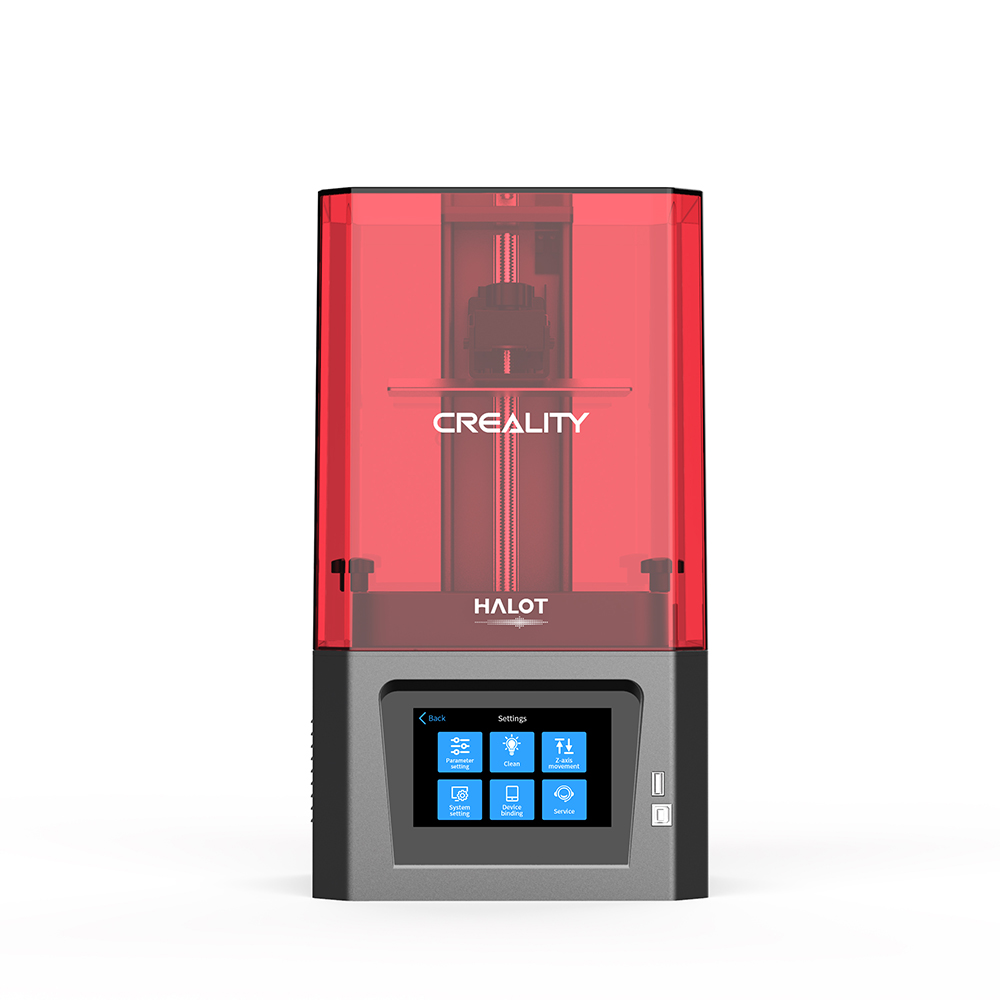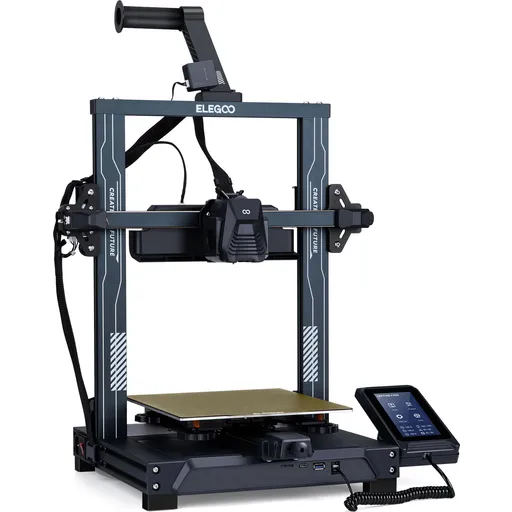Compare Halot One vs Neptune 4 PRO
Comparison between the best 3D printers
Choose the best 3D printer at the best price. The cheapest 3D printers are here.
Buy a 3D printer here with 3D Fila.
 |
 |
|
| Model | Halot One |
Neptune 4 PRO |
| Printing Material | Resin | Filament |
| Buy Resin for Creality 3D Halot One | Buy Filament forElegoo Neptune 4 PRO | |
| Estimated price | $250,00 | $359,00 |
| Manufacturer | Creality 3D | Elegoo |
| Release Year | 2021 | 2023 |
| Print Volume [mm] | 127x80x160 | 225x225x265 |
| Printer Size [mm] | 221x221x404 | 475x445x515 |
| Weight [kg] | 7,1 | 8,9 |
| Power Loss Recovery | NO | YES |
| Maximum Resolution [mm] | 2k | 0,1 |
| Processor | ARM 64 bit | |
| Display | Touchscreen 4,3'' | |
| Power Supply | 310 W | |
| Connectivity | USB, microSD | |
| Operating systems | Windows, Mac, Linux | Windows, Linux, Macbook |
| Date of registration in the system | 2022-10-11 | 2024-07-02 |
| Release date | 2021 | 2023 |
| Extra features | Crealitys Halot-One printer stands out with several innovative features. It has a high-resolution touchscreen, providing an intuitive and responsive interface. Its quiet printing capability is remarkable, ideal for environments where noise is a concern. Assembly and setup are simple, with automatic functions facilitating quick start. Among its features, remote monitoring and adjustments via the Creality Cloud app stand out, simplifying remote print management. Replacing the FEP in the resin vat is easy, and the printer even includes extra FEP sheets. Top cover removal detection increases safety by automatically pausing printing. In addition, its integral light source promises high uniformity, optimizing print quality. | The Elegoo Neptune 4 Pro stands out for its advanced features, including pre-installed Klipper firmware, a dual-gear direct extruder with a 5.2:1 ratio, a high-temperature nozzle (up to 300°C), a flexible magnetic PEI platform, efficient cooling fans, and a 121-point auto-leveling system. The printer also features a 4.3-inch touchscreen interface, dual linear bars on the X and Y axes, and a segmented heated bed for energy savings. |
| Support for multiple colors and materials (AMS and CFS) | NO | NO |
Notes * |
||
| Cost-benefit | 8 / 10 | 7 / 10 |
| Hardware | 0.6 / 10 | 3.2 / 10 |
| Tela | . | . |
| Print volume | 3 / 10 | 3 / 10 |
| Performance | 9 / 10 | 4 / 10 |
Conclusion |
| In comparing the Creality 3D Halot One and the Elegoo Neptune 4 PRO, several factors come into play, including price, features, print volume, and overall performance. The Halot One, being the more budget-friendly option, offers a compact design with a modest print volume, making it suitable for smaller projects and users who require a quiet operation. Its key highlights include a high-resolution touchscreen, simple assembly, and impressive print quality due to its integral light source. However, it lacks features such as power loss recovery and a larger build size, which may limit its usability for more extensive projects. On the other hand, the Neptune 4 PRO impresses with a significantly larger print volume and advanced features such as high-temperature printing capabilities, dual-gear direct extruder, and efficient auto-leveling. While it comes at a higher price point, its performance and ability to handle various materials make it a solid choice for users looking for versatility and reliability in larger print jobs. Moreover, the inclusion of power loss recovery adds a layer of convenience and safety during operations. In conclusion, the choice between the two largely depends on user needs and budget. For those who prioritize affordability and simplicity, the Halot One offers a commendable option, especially for smaller prints. Conversely, if a larger capacity and advanced features are essential, the Neptune 4 PRO presents a more robust solution despite its higher cost. Ultimately, both printers deliver excellent value in their respective categories. |

